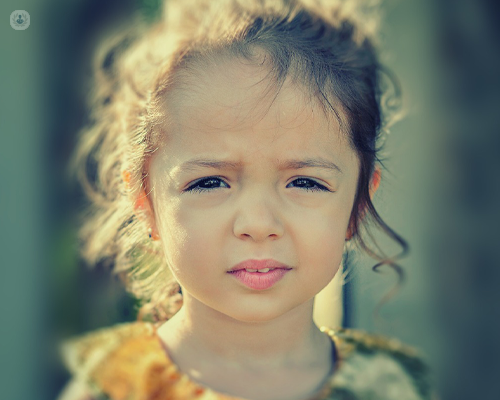Understanding and managing anxiety in children: A guide for parents
Escrito por:Anxiety in children is a common mental health concern that can manifest in various ways, such as excessive worry, fear, or nervousness.

What is anxiety in children?
While occasional anxiety is a normal part of childhood development, persistent or intense anxiety can interfere with daily life. Children may become anxious about school, social situations or family issues, and in some cases, the anxiety may be related to specific phobias or traumatic experiences.
What are the signs of anxiety in children?
Recognising the signs of anxiety in children is key to helping them manage it effectively. Some of the common symptoms include:
- Physical symptoms: Headaches, stomach aches, difficulty sleeping, or fatigue without a clear medical cause.
- Behavioural changes: Avoiding certain situations or places, frequent outbursts or becoming withdrawn.
- Emotional symptoms: Constant worrying, feeling restless or anxious all the time, or appearing overly clingy or irritable.
- Difficulty concentrating: Children may find it hard to focus on schoolwork or other tasks.
- Regression: Younger children may revert to behaviours they have outgrown, such as bedwetting or thumb-sucking.
What causes anxiety in children?
It can be triggered by different things. These include:
- Genetics: Children with a family history of anxiety disorders may be more prone to experiencing anxiety.
- Environmental factors: Stressful situations at home, school, or in social settings can trigger anxiety.
- Temperament: Children who are naturally more sensitive or introverted may be more likely to experience anxiety.
- Trauma: Past traumatic experiences, such as the death of a loved one, a divorce or bullying, can lead to heightened anxiety.
How can parents help children manage anxiety?
Supporting a child with anxiety involves understanding their feelings and helping them develop coping strategies. Here are some ways parents can help:
- Open communication: Encourage your child to talk about their fears and worries without judgment. Active listening can help in them feeling heard and understood.
- Develop coping strategies: Teach relaxation techniques such as deep breathing, mindfulness, or visualisation to help your child calm down during anxious moments.
- Set a routine: A predictable daily routine can provide a sense of security and stability, which may help reduce anxiety.
- Encourage healthy habits: Ensure your child gets enough sleep, eats a balanced diet, and engages in regular physical activity. Exercise can be a great way to relieve anxiety.
- Gradual exposure: If your child is anxious about specific situations (like social events), gradually exposing them to the feared situation in small steps can help reduce their fear over time.
When should you seek professional help?
While many children can overcome anxiety with support at home, there are times when professional help is needed. You should consider seeing a mental health professional if:
- The anxiety is interfering with your child's daily life (e.g., school performance, friendships).
- The anxiety leads to physical symptoms like constant stomach aches, or headaches.
- Your child exhibits signs of panic attacks, such as rapid breathing or dizziness.
- The anxiety persists for an extended period and does not improve despite your efforts.
What treatments are available for childhood anxiety?
Treatments for childhood anxiety can vary, but common approaches include:
- Cognitive behavioural therapy (CBT): This is a common and effective form of therapy that helps children identify and manage their anxious thoughts.
- Family therapy: Involving the whole family in therapy can be beneficial, as anxiety can be influenced by family dynamics.
- Medication: In more severe cases, a healthcare provider may recommend medication to help manage anxiety symptoms, although this is usually considered a last resort.
Understanding and managing anxiety in children is crucial to their mental and emotional well-being. By recognising the signs of anxiety, offering support at home, and seeking professional help when necessary, parents can help their children build resilience and lead a more balanced life.


